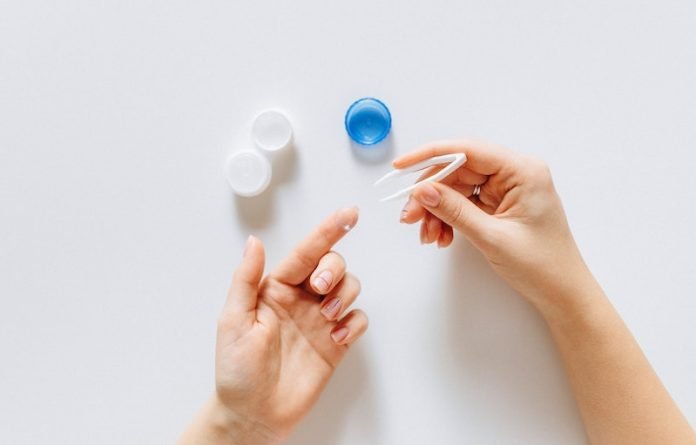
In a study from UCL and Moorfields, scientists found people who wear reusable contact lenses are nearly four times as likely as those wearing daily disposables to develop a rare sight-threatening eye infection.
They found multiple factors that increase the risk of Acanthamoeba keratitis (AK), including reusing lenses or wearing them overnight or in the shower.
AK is one type of microbial keratitis (corneal infection)—a condition that results in inflammation of the cornea (the eye’s clear protective outer layer).
Contact lens use is now the leading cause of microbial keratitis in patients with otherwise healthy eyes in countries in the global north.
Sight loss resulting from microbial keratitis is uncommon but Acanthamoeba, although a rare cause, is one of the most severe and is responsible for about half of those contact lens users who develop sight loss after keratitis.
Up to 90% of AK cases are associated with avoidable risks, although the infection remains rare, affecting fewer than 1 in 20,000 contact lens wearers per year in the UK.
AK causes the front surface of the eye, the cornea, to become painful and inflamed, due to infection by Acanthamoeba, a cyst-forming microorganism.
The most severely affected patients (a quarter of the total) end up with less than 25% of vision or become blind following the disease and face prolonged treatment.
Overall, 25% of people affected require corneal transplants to treat the disease or restore vision.
In the study, the researchers recruited over 200 patients of Moorfields Eye Hospital who completed a survey, including 83 people with AK, and compared them with 122 participants who came to eyecare clinics with other conditions, who acted as a control group.
The team found people who wore reusable soft contact lenses (such as monthlies) had 3.8 times the odds of developing AK, compared to people who wore daily disposable lenses.
Showering with lenses increased the odds of AK by 3.3 times, while wearing lenses overnight increased the odds by 3.9 times.
Among daily disposable wearers, reusing their lenses increased their infection risk. Having had a recent contact lens check with a health professional reduced the risk.
The researchers also found that 30-62% of cases in the UK, and potentially in many other countries, could be prevented if people switched from reusable to daily disposable lenses.
The team says contact lens packaging should include information on lens safety and risk avoidance, even as simple as ‘no water’ stickers on each case, particularly given that many people buy their lenses online without speaking to a health professional.
If you care about eye health, please read studies about diet linked to blinding eye diseases in older people, and vitamin B3 could help treat common blinding eye disease.
For more information about eye health, please see recent studies that pure cocoa may improve your eye sight in daylight, and scientists one step closer to treatment for the most common blinding eye disease.
The study was conducted by Professor John Dart et al and published in Ophthalmology.
Copyright © 2022 Knowridge Science Report. All rights reserved.



